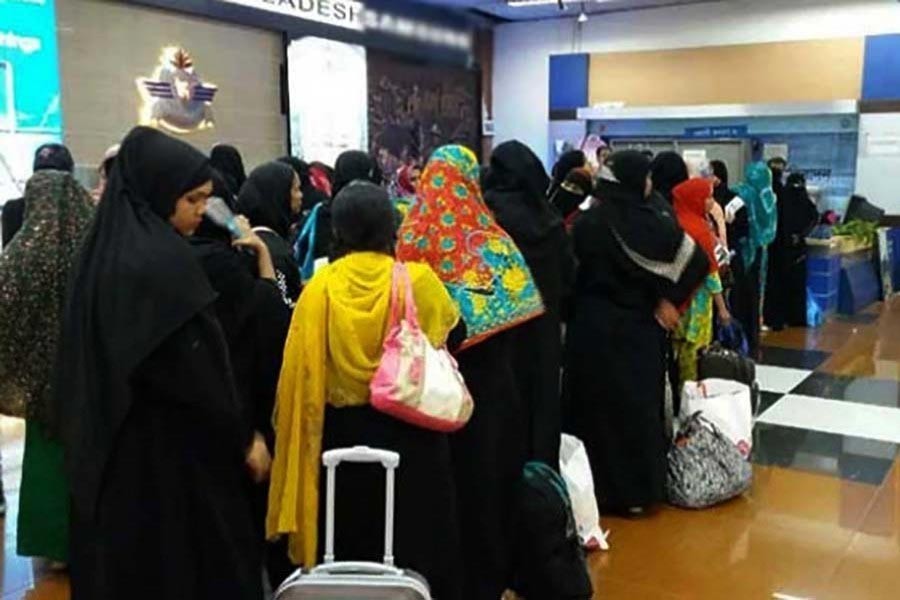Women domestic helps who have returned home from abroad are getting hardly any legal support or compensation for want of proper initiative from the government side, insiders have said.
Though there exist different laws and arbitration systems in the country, the victim women fail to get benefits duly as the offenders get their safety ensured in the legal instruments beforehand, they observed.
Women are fully deprived of justice in the job destination countries as not a single case has been filed yet against the employers on charge of torturing their maids.
Returnee workers alleged instead of giving legal support, police in the destination countries rather arrest women on different charges.
Missions are often unwilling to hear their problems.
Because of sexual and physical harassment and non-payment of wages, arrival of women is on the wane over the past several years.
From Saudi Arabia alone at least 1,500 maids have returned home in 2018.
Women come back home from other countries also- like Lebanon, UAE and Oman for the same reasons.
Returnee workers experience an unbearable life being burdened with loan and facing family conflicts, separation and agonies for extramarital affairs, social exclusion as well as disputes over land and assets.
So protection of the women is a very vital issue to bring their lives to normal, rights campaigners said.
Parul Begum (pen name) returned home after seven months of her migration to Saudi Arabia.
Her employer assaulted her sexually and did not pay her monthly salary.
So she fled the house and took shelter in the safe home of Bangladesh embassy.
But after she returned home, her husband divorced her bringing the allegation of being 'a bad woman'.
Mother of two daughters, she said, "I'm feeling very much helpless at this moment as my children are at the risk of dropping out from their school."
"I can't afford their education fees and daily expenses as now I am working at a garment factory receiving salary of Tk 7000 a month,"said Ms Parul, who hails from Savar.
When asked, Parul said she filed a case against dalal (middleman); but within a few days she was forced to withdraw the charge following threat from the accused.
According to experts and victim women, a few cases were filed under the Overseas Employment and Migration Act 2013 since the enactment of the law.
It is very difficult to bring the criminal under punishment because of the legal loopholes.
Besides, cases under the Human Trafficking Deterrence and Suppression Act (2012) remain long-pending as there is no necessary tribunal and victim support system.
The government has also arrangement of arbitration but maximum women do not know about the service.
Besides, victim support is weak in this process; so recruiters can easily influence the workers.
Without involvement of migrant rights groups or NGOs, the success rate of such arbitration is almost zero.
Shikha Akhtar (pen name), another returnee worker, received
Tk 37,000 from his recruiting agency through arbitration.
Shikha lodged a complaint with the BMET with the assistance of an NGO claiming Tk 50,000 compensation.
"To get this money, I had to wait for two months," she said, adding the broker misbehaved with her as she applied for the compensation.
"The government has made the Migration Act-2013, which is only an eyewash," human rights lawyer Salma Ali said, adding implementation of the law is very difficult.


